- About
- Offerings
- Tools
- Pricing
- Partner
- GyanHub
- Resources
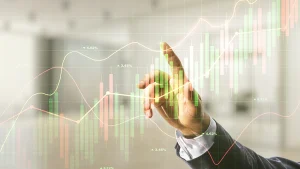
A commodity is a raw resource or primary agricultural product that can be purchased or sold, such as gold, silver, crude oil, natural gas, and agricultural crops like wheat, rice, cotton, and others. Indian investors frequently trade commodity through platforms like the Multi Commodity Exchange (MCX) and the National Commodity and Derivatives Exchange (NCDEX). Topics we are going to discuss later on in this article.
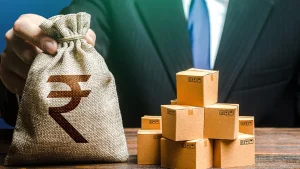
In secondary markets, we often trade assets such as stocks, bonds, and other financial instruments online. But few of us engage in commodity trading. Trading in raw resources such as metals, oilseeds, spices, gold, rubber, and other commodities is known as commodity trading. To diversify their portfolio, the majority of professional traders use commodities trading. Your investments may lower the total risk to your portfolio, depending on the commodity.

Dealing with taxes is a constant part of trading. Investors usually take tremendous measures to reduce their tax obligations, and they typically conduct in-depth analysis to assess if an asset qualifies. Chartered accountants are frequently hired by individuals or businesses to seize opportunities and help them manage their taxes effectively. One asset that has always been tax-free to trade, is commodities. However, this isn’t the case anymore. Let’s find out more.

The practice of investing in gold is fairly common. Depending on their financial objectives, people invest money in various types of gold. The earliest type of gold investing is physical gold. However, there are now a variety of methods for investing in gold. Jewelry, gold coins, gold ETFs, sovereign gold bond taxation, digital gold, and other derivatives are all options for investors. Tax treatment varies depending on the type of gold investment. Let’s examine the tax on gold investment in India.
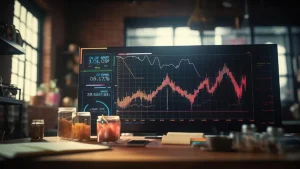
Commodity trading in the Indian stock market can be a complex investment opportunity, as it can also come with risks and potential losses. Commodity traders are exposed to various market fluctuations, such as changes in demand, geopolitical events, and currency movements. However, along with a precise planning and implementation of a proper plan, traders can short their losses and escalate their ROI. Some of the tips to avoid losses in commodity trading in the Indian stock market are stated underneath in this article.

Gold is an integral part of Indian culture and traditions while also being one of the oldest investment instruments. In the history books, investing in gold has demonstrated to be a reliable hedge against inflation. That said, if you are looking at gold purely from an investment standpoint, the physical form dissuades some investors.
However, we live in the internet age; the financial system has designed a solution to solve the aforementioned issue. And today, you can invest in gold digitally through Sovereign Gold Bonds.
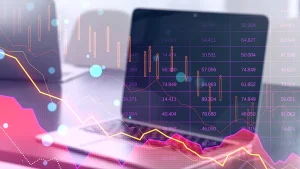
All the various kinds of assets and contracts that can be traded are referred to as trading instruments. Various sorts of trading instruments exist, some of which are more well-known than others.
They include indices, currencies, forward contracts, shares, and more. This article shall undertake a course to explore the trading instruments in commodities market. The commodity market instruments are key for the successful trading of commodities. For starters, let’s begin by defining commodities and then move on to the commodity trading instruments.
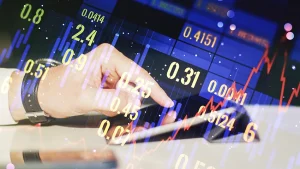
The most common types of financial markets are the stock market, bond market, foreign exchange market, and commodity market. The stock market is where shares of publicly traded companies are bought and sold.
This type of market provides investors with an opportunity to invest in specific companies and earn returns on their investment through dividends or appreciation.The commodity market is another market that traders exit.You can learn the fundamentals of commodity trading from the information provided below and then invest in commodity trading. So let’s begin with what commodity trading is.

Even in the most hostile cases, gold has performed better than other strategic assets. It is frequently purchased as part of a portfolio diversification strategy to lessen losses from other asset classes. Investors begin investing in gold in different forms after realizing its potential. In addition to being purchased in physical form, gold can be invested in Sovereign Gold Bonds (SGBs). These bonds are a better option than actual gold because they provide periodic interest and market value at maturity. Before you start thinking about SGBs as a possible investment, let’s learn how to invest in SGB online.
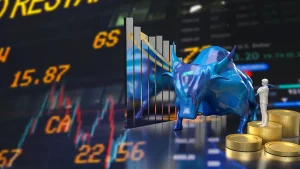
If you are tracking the stock markets, you will observe several phenomena, like the relationship between stock prices and raw materials (commodities). For example, when crude oil prices shoot up, you will see a meaningful decline in the stock prices of those companies relying on crude for their daily operations. Even the best companies’ stock will get impacted.
In such a scenario, wouldn’t it be nice if you could bet on the price of crude oil increasing? The thing is, you could do that by trading in the commodity markets, yet many people don’t do that. So, let’s look at how you can profit from such situations by learning more about commodity trading.
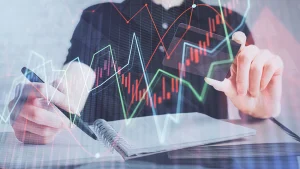
India’s commodity futures market has been there for more than a century. In order to trade cotton derivative contracts, the Bombay Cotton Trade Association formed the first regulated futures market in 1875. Institutions for trading in oilseeds, food grains, etc.used this as their model for trading. Between the First and Second World Wars, the Indian futures market expanded quickly. Numerous commodity exchanges were flourishing nationwide. They traded futures contracts in a variety of commodities like cotton, groundnut oil, jute, rice, and precious metals like gold and silver. Now, all these items are also available for futures trading. So, let us find out the list of commodities in mcx (Multi Commodity Exchanges) of India allowed for futures trading.
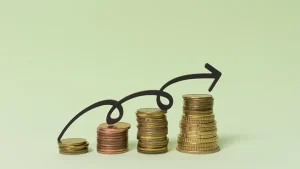
Equity Vs Commodity: Both equities and commodities are financial investment instruments/asset classes. They both hold real value. Simply put, the major difference between equity and commodity classes :
1. Equity is the company’s stock
2. Commodities are tangible items like copper, crude oil, coffee, etc.
So if you buy equity, you buy a company’s stock. Plus, if you’re reading this article, you probably at least have a gist of why equity/stocks interest people—to grow their wealth.
Conversely, when you are buying commodities, you’re buying a physical commodity; no, not really. In addition, when it comes to commodities, they are more interested in its hedging properties to protect their investments.
If you want a more in depth take on the equity vs commodity subject, consider reading the rest of the article.